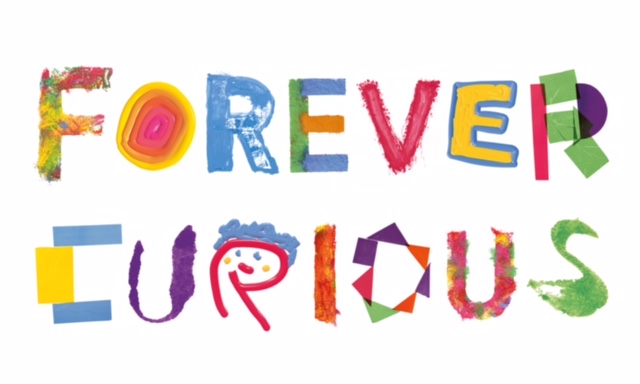Pupil Premium
Covid Catch Up Premium
In June 2020 the government announced £1 billion of funding to support children and young people to catch up on missed learning caused by coronavirus (COVID19). This is especially important for the most vulnerable pupils and pupils from disadvantaged backgrounds who we know have been most affected.
This funding includes:
-
a one-off universal £650 million catch-up premium for the 2020 to 2021,a nd 2021-22 academic years to ensure that schools have the support they need to help all pupils make up for missed learning
-
a £350 million National Tutoring Programme to provide additional, targeted support for those children and young people who need the most help, which includes:
-
a schools programme for 5 to 16-year-olds – for more information, see the National Tutoring Programme FAQs
-
an oral language intervention programme for reception-aged children
Millfields Covid Catch Up Premium Details
The Pupil Premium is an additional amount of money given to schools, on top of their main budget. Every school receives a fixed amount of money per pupil for all pupils meeting certain criteria. The main criterion is eligibility for free school meals at any given point within the last 6 years or those children who have been cared for by the Local Authority for at least 6 months. The money is provided to schools so that we can raise attainment and progress for this group of pupils.
- Increase social mobility
- Enable more pupils from disadvantaged backgrounds to access the best education
- Reduce the attainment gap between the highest and lowest achieving pupils
Pupil Premium 2023-2025
Introduced in 2011, the Pupil Premium Grant (PPG) is additional government money given to publicly funded schools in England to help disadvantaged young people do well at school and narrow the gap, both in school and nationally, between them and their peers.
Research shows that students who are entitled to Pupil Premium face challenges such as poor language and communication skills, less family support, lack of confidence, and issues with attendance and punctuality.
The funding is allocated to schools for students from Reception to Year 11 who have registered for free school meals in the last six years, and young people who are in care or have parents in the Armed Forces.
Schools are free to choose how to spend their Pupil Premium money. This may include funding extra classroom support, maths and literacy catch-up sessions, educational trips, music lessons or a breakfast club, speech and language or family therapy, or learning resources.
At Millfields, this money is focused on promoting and enhancing pupil welfare, especially in the light of the pandemic that has led to lockdown and missed learning, raising standards for all through teacherprofessional development as well as targetted intervention and provision, as well as enriching and extending the currciulum.
Evidence suggests that pupil premium spending is most effective when schools use a tiered approach, targeting spending across the following 3 areas below but focusing on teaching quality - investing in learning and development for teachers.
Teaching
Schools arrange training and professional development for all the their staff to improve the impact of teaching and learning for pupils.
Academic support
Schools should decide on the main issues stopping their pupils from succeeding at school and use the pupil premium to buy extra help.
Wider approaches
This may include non-academic use of the pupil premium such as:
-
school breakfast clubs and after-school clubs
-
music lessons for disadvantaged pupils
-
help with the cost of educational trips or visits
-
speech and language therapy
Schools may find using the pupil premium in this way helps to:
-
increase pupils’ confidence and resilience
-
encourage pupils to be more aspirational
-
benefit non-eligible pupils
Schools can spend their pupil premium on pupils who do not meet the eligibility criteria but need extra support, for example those pupils who:
-
are in contact with a social worker
-
used to be in contact with a social worker
-
are acting as a carer
Our Principles:
· We ensure that teaching and learning opportunities meet the needs of and actively include all of the pupils
· We ensure that appropriate provision is made for pupils but especially for those who belong to vulnerable groups, this includes ensuring that the compound needs of disadvantaged pupils are adequately assessed and addressed
· In making provision for disadvantaged pupils, we recognise that not all pupils who receive free school meals will be disadvantaged
· We also recognise that not all pupils who are disadvantaged are registered for or qualify for free school meals. Therefore, we reserve the right to allocate the Pupil Premium funding to support any pupil or groups of pupils the school has legitimately identified as being disadvantaged.
· Pupil premium funding will be allocated following a needs analysis which will identify priority classes, groups or individuals. Limited funding and resources means that not all children receiving free school meals will be in receipt of pupil premium interventions at one time.
· Our work through the pupil premium will be aimed at children to make at least expected progress against others nationally
· Pupil premium resources will also be used to ensure that more able children receiving PPG achieve greater depth at the end of KS1 and KS2
For details of how we make decisions about how Millfileds' Pupil Premium is spent please click on the link. Our strategy is reviewed in the Autumn term each year when we evaluate its impact on the lives and learning journeys of our pupils:
Millfields Pupil Premium statement 2023-25
Millfields Pupil Premium Policy
We are also lucky to be part of an amazing creative project funded and organised by advertising agency Wieden and Kennedy, that aims to to enrich and enhance the wider curriculum offer for pupils in receipt of pupil premium grant in Years 4-6.
See a presentation about this here:
This project logo was created by Millfields children as part of our on-going work with the project.

The children and their creative buddy at the agency devised a secret 'handshake' to celebrate their working relationship:
One of the outcomes was a stunning installation featuring models of dream planets that represented their personal creative spark:
Please enjoy this video documenting the project:






